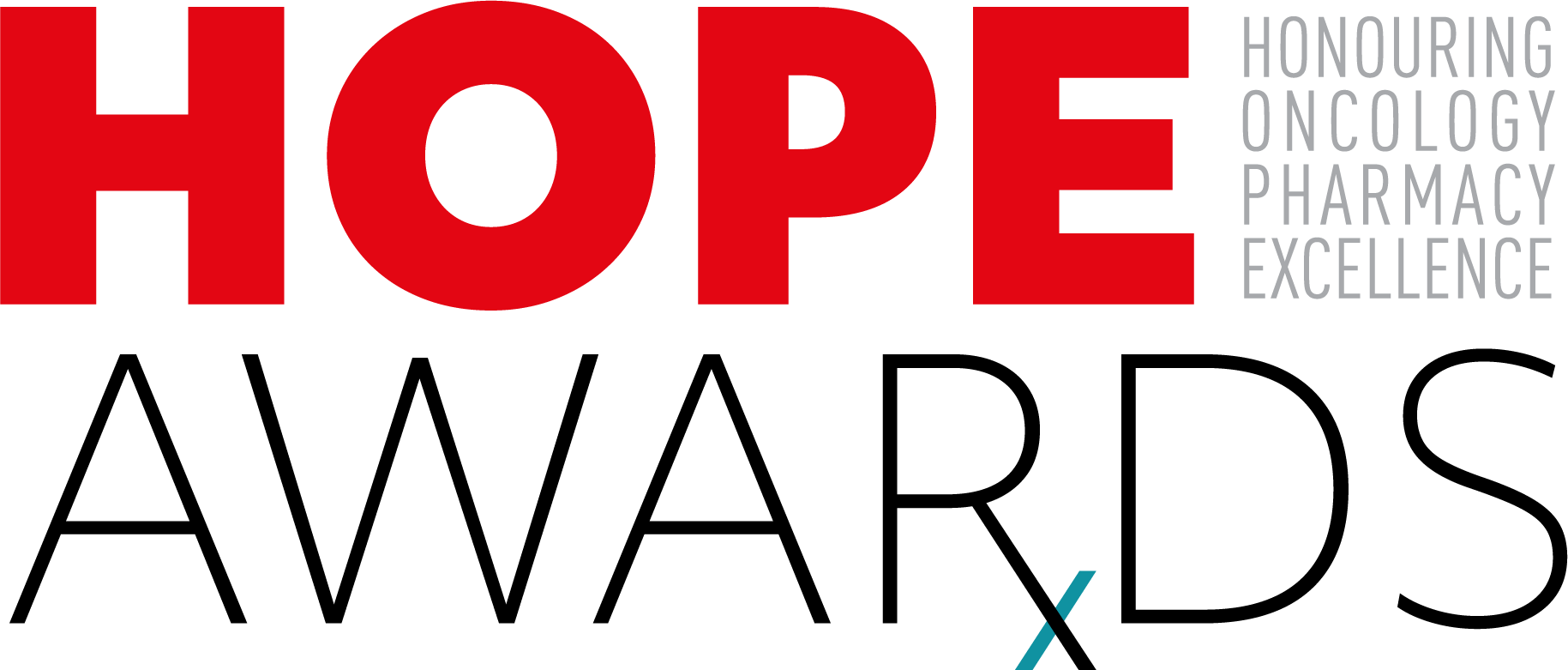TOP PROJECT WINNER: INTERPROFESSIONAL PROGRAMS
Laura Minard, Ny Phonchareon, Samantha Scott, Nada Toulany, and Amanda Daniels
Nova Scotia Health
Laura Minard, Ny Phonchareon, Samantha Scott, Nada Toulany, and Amanda Daniels were awarded a Top Project HOPE Award for their project, ‘Development and implementation of a pharmacist-led gynecology oncology PARP inhibitor clinic’.
To narrow the gap in care that exists for individuals receiving oral cancer therapies in Nova Scotia, a pharmacist-led PARP inhibitor clinic was developed and implemented in 2022 in collaboration with the gynecology oncology division and nurses. This Nova Scotia Health clinic set out to integrate oncology pharmacists into the multidisciplinary team to provide care to patients with ovarian cancer who are receiving one of two oral PARP inhibitors (olaparib or niraparib), to enhance the quality of care provided to these individuals, and to offload oncologist and nurse workload.
Design: There were 601 patient encounters in the first two years of clinic implementation including 446 visits that replaced an oncologist/nurse visit as well as 93 visits that were considered enhancements to patient care. Clinic pharmacists provided education, completed best possible medication histories, assessed for drug interactions, conducted adherence checks, completed toxicity assessments, and reviewed bloodwork.
Results: Pharmacists identified 278 drug-therapy problems (DTPs): 46% of DTPs were related to an adverse drug event and 85% of DTPs were associated with the PARP inhibitor drug itself. Pharmacists made 131 clinical interventions, and 148 interventions related to the coordination of patient care. The top three types of clinical interventions were ‘counsel patient’, ‘stop drug’ and ‘start drug’. The most common toxicities managed by clinic pharmacists were chemotherapy-induced nausea and vomiting and hypertension; pharmacists were able to utilize protocols to assess and prescribe for both toxicities.
The clinic has 1) allowed more patients with cancer who are prescribed oral cancer therapies to receive care from an oncology pharmacist, 2) offloaded approximately two-thirds of physician/nurse patient encounters, and 3) offered enhanced patient care through the provision of patient education, medication adherence checks, close monitoring and follow-up, increased accessibility to the oncology team, and more seamless patient care including easier access to supportive care and toxicity management.
